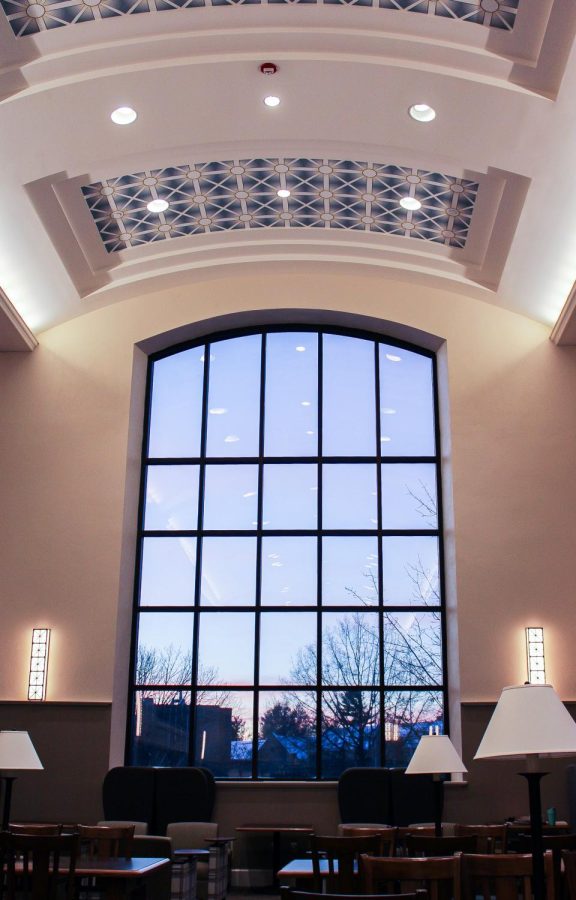Affordable Materials Project
Villanovan Photography/Meredith Green
AMP is a university-wide collaboration between the University bookstore, Falvey Memorial Library, the Center for Access, Success and Achievement and the Office of the Provost.
April 6, 2022
The Affordable Materials Project (AMP) was created to help meet student financial needs and support academic success.
AMP is a university-wide collaboration between the University bookstore, Falvey Memorial Library, the Center for Access, Success and Achievement and the Office of the Provost. Each of these groups work together to address the serious issue of student access to high quality and affordable course materials.
Linda Hauck, Business Librarian and AMP Committee Member, believes strongly in the positive impact that this group is making on Villanova’s campus.
Hauck was the person who proposed that the AMP group should work to make faculty required books available in the Falvey Memorial Library. This was not an easy task, as the group needed to gather the course materials data from the bookstore and then ingest that data into the library catalog. There was lots of technical work involved and a significant library budget set aside to help make affordable materials more accessible for Villanova students.
It is “a huge effort for faculty to use low cost and affordable materials as well,” Hauck said.
Luckily, the AMP group has raised awareness of Open Educational Resources (OER)-textbooks. These textbooks are free for students to use due to Creative Commons licenses-and OER Adoption grants. These grants are given to faculty members who chose to use these openly licensed textbooks.
“The OER textbook is a very good primer for the course subject matter giving clear definitions, and several examples for each item covered, which enhances understanding while also giving practical application/use of the material covered,” an anonymous source said.
The grant helps in the University’s goal of meeting 100% of all demonstrated student financial needs. OER promotes equity in the classroom by giving all students direct access to required course materials.
The investment made by the library towards AMP has yielded strong results. Now in AMP’s fourth year, its e-book matching and OER adoption programs have potentially saved students more than $1.4 million in course materials.
Students have voiced their gratitude for AMP’s efforts to make these course materials accessible. They feel more engaged and secure in their ability to do well in their courses.
“The fact that this quality of a textbook was offered for free turned it from an accessory to a staple of my study habits,” one student said. “This offer allowed me to stay up to date with class and even get ahead.”
“The free textbook was a stress reliever,” another student said. “Many classes I have to worry about whether or not I actually need the textbook and sometimes fall behind if I haven’t purchased it yet. This textbook was always available, and I never had to worry about access to critical material.”
AMP has lowered the stress and anxiety that some students feel when acquiring course materials. Many students are reluctant to disclose that they need financial help. AMP helps the students get the materials they really need without worrying about cost.
When asked about her personal thoughts on the Affordable Materials Project, Hauck expressed her desire to see the expansion of this project.
“I would love to see the university grow it and recognize that it is a project that really does contribute to the University’s efforts to meet the full financial needs of students,” Hauck said.
Hauck emphasizes that this is not just a financial issue, but the efforts of AMP also speaks to a sense of student belonging in the classroom. She hopes for increased support in recognizing that the project works to embody Villanova’s Caritas Commitment and sense of community within the University.
AMP would love to potentially have student representation in its group to have a different perspective added to its efforts.











